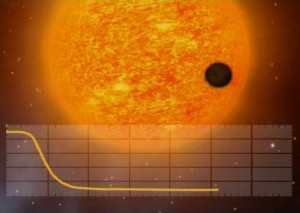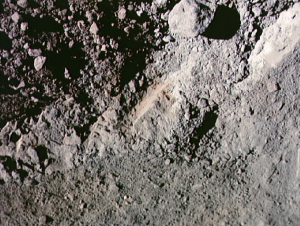When working in the space field, we quite often get asked: how can you justify the expenses of space research? It is funny that we get this question more often than other researchers, e.g. particle physicists or biomedical researchers, in whose fields more money is spent globally.

When Venus transited in 2012, many people on Earth watched this astronomical event – recognising the workings of the Solar System’s clockwork.
When thinking about what to reply to this – in any case justified – question, I thought about our recent experience of the Venus transit. I was not lucky enough to witness it myself, so I read the articles that are around on the web.
I found one that described the science that was done at the 2004 transit (remember, they always come in pairs, eight years apart followed by a gap of more than a hundred years). In this article, the writer described the analysis of the Venus transit data as a preparation of the characterization of atmosphere of exoplanets – a scientific feat that is just in our grasp today.
I had to think about the reports we have about the observations of Venus transits in the eighteenth century, which were used merely to determine the Sun-Earth distance. Isn’t it amazing that we still today observe the same thing, and because of what we have learned from Mother Nature, we can derive so much more than three hundred years ago?

The Apollo 17 astronauts spotted an unusual soil when passing by a volcanic region near their landing site. First they thought it was some kind of metal oxide. It later turned out to be volcanic glass.
Another great example is an analysis of Moon rocks. Collected by the Apollo 17 astronauts in 1972, the famous ‘orange soil’ has just last year (2011!) led to the conclusion that the Moon’s mantle is not as dry as had been thought based on the analyses of lunar basalts (Hauri et al., Science 333, pp. 213-215, 2011).
The examination was made possible by modern micro-analysis techniques (‘time of flight secondary mass spectroscopy’). I have presented at the first SpaceUp conference in Genk, Belgium, on the broader context of this finding in lunar exploration. You can find a video of the presentation here.

Modern high-resolution microscopy and secondary ion mass spectroscopy allows determination of the composition of micron-sized objects in Moon rocks (taken from Fig. 1 of Hauri et al., Science 333, pp.213-215, 2011).
It appears that observations and samples in space exploration are an infinite source of information. And, if we define the value of research by its information content, this means that each piece of data, each observation, each sample taken has an unlimited value.
So, the next time somebody asks about the value of space science you’ll know what to say: priceless!

Discussion: no comments